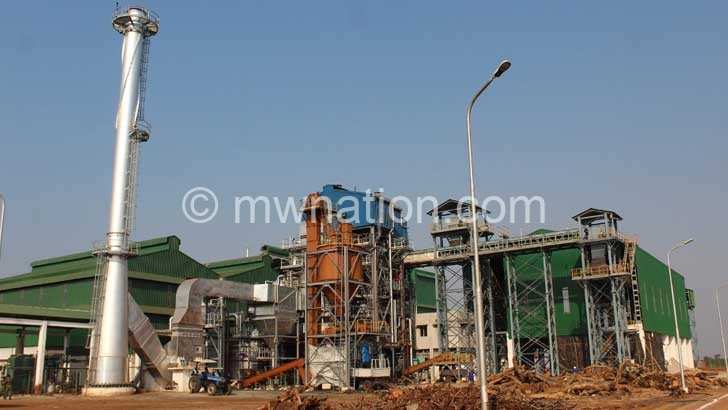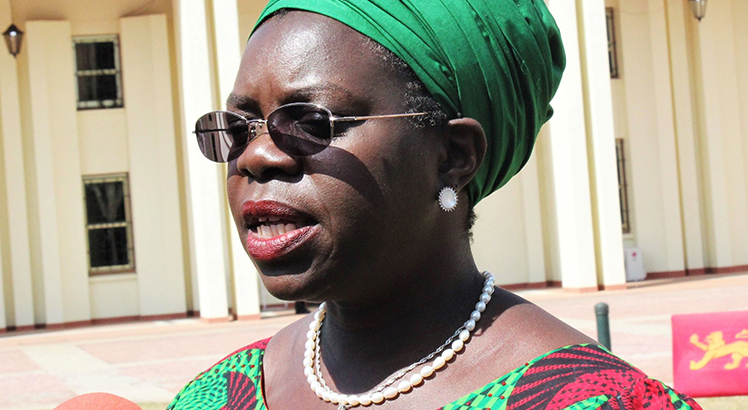Salima Sugar under scrutiny
Audit reveals K50bn can’t be validated
SPC deploys State security at factory
Public-Private Partnership (PPP) venture Salima Sugar Company Limited (SSCL) has come under strict State scrutiny after an interim audit report revealed funds mess at the company where K50 billion payments cannot be validated.
Secretary to President and Cabinet (SPC) Colleen Zamba has since ordered deployment of State security at the company’s factory in Salima District.

In a statement dated October 20 2023, she said the preliminary report of the forensic audit of the company was submitted to the Malawi Government and other shareholders of Salima Sugar Company.
Reads the statement in part: “I direct that all matters relating to the business of the company must be directed to the executive chairman of Salima Sugar Company and that State security be deployed to secure SSCL facilities until the final report is issued.”
When contacted on Sunday, Salima Sugar Company executive chairperson Peter Kossamu said he could not comment on the contents of the draft report as the final one is expected to be out by November 3 2023.
“For purposes of being fair and professional, it will not be necessary for me to comment since the report is in draft form. All media houses and all stakeholders will be invited to a press briefing once the official one is ready,” he said.

But a copy of the preliminary audit report The Nation has seen shows that the company has failed to validate utilisation of $42.86 million (about K55 billion) out of the $76.5 million K114 billion borrowed from India and local banks to finance the setting up of the firm.
The loan from India was meant for construction of fuel tanks and irrigation network for the company, a joint-venture investment, in which the Government of Malawi is the minority shareholder.
The 122-page report also reveals that government ended up guaranteeing $25 million (K30 billion) for raising of loan capital which the investor failed to pay their equity share contrary to the shareholding agreement.
Reads the report: “We were not provided with supporting documents from government to substantiate and validate utilisation of $42.86 million from the $76.5 million net of $33.640 million used for the construction of three fuel tanks pegged at $26.5 million and irrigation networks pegged at $16.36 million.”
According to the report, the Green Belt Initiative Holdings Limited (GBIHL), a private limited company wholly owned by Malawi Government, went into a shareholding agreement with Aum Sal on August 27 2015 to form Salima Sugar Company under a PPP arrangement even when the investor was only two months old as a registered Malawian company which never submitted a bid.
Reads the report: “GBIHL was incorporated on July 2 2015 while Aum Sal was incorporated on July 15 2015 under Malawi Companies Act 2013.
“SSCL was incorporated on October 22 2015 while the shareholding agreement was signed on August 27 2015 just after incorporating GBIHL and Aum Sal.
“This means Aum Sal was less than 60 days old on the date of signing the joint venture agreement. However, it is stated that the company had been engaged in the business of hydropower, electrical engineering, farming business Malawi.”
According to the report, in less than 60 days Aum Sal acquired technical competence for the production of sugar and allied products through technical partners engaged in the business of engineering procurement and construction of sugar, biomass power and chemical plants.
During the signing of the shareholding agreement in 2015, it is indicated that Malawi Government invested $35 million in the sugar project through SSCL consisting $33.640 million sugar mill, $800 000 in land and $744 000 in buildings.
Over and above the $35.184 million investment, Malawi Government also issued guarantees for the raising of $25 million loan capital in 2016.
These loans were obtained in tranches of $7 million, $12 million and $6 million from a local bank.
On the other hand, the investor Aum Sal was expected to contribute $17.1 million as capital share at least by May 31 2017 which was not completed until this year—six years after the set deadline, notes the report.
The report has since recommended that the shareholding agreement was breached and that GBIHL and Public Private Partnership Commission should review it.
The audit also calls for action against officers who drafted the contract between the government and the investor.
According to the report, GBIHL ought to be a majority shareholder with 88 percent and the investor with 12 percent stake to reflect true share ownership.





